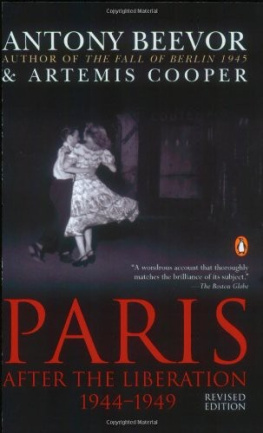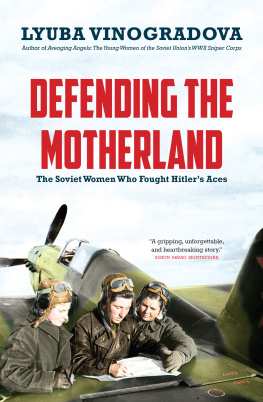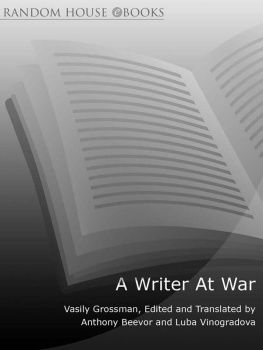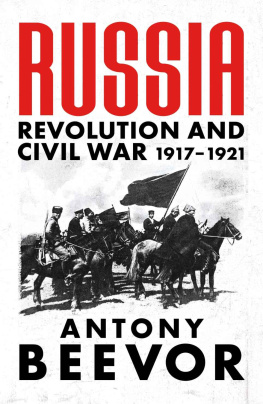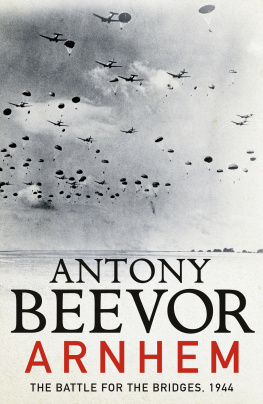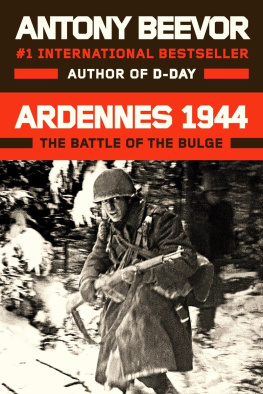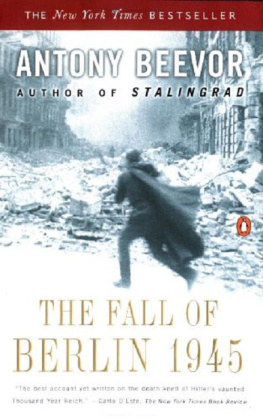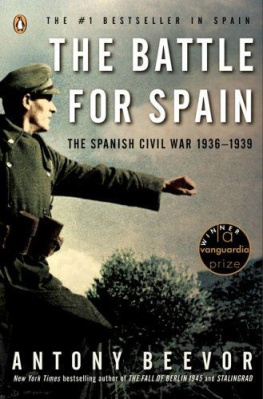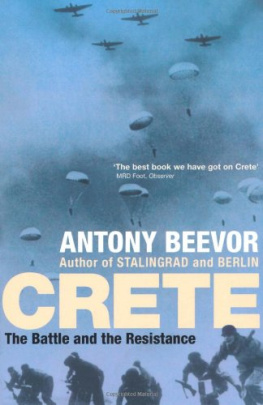Beevor Antony - Paris after the Liberation, 1944-1949
Here you can read online Beevor Antony - Paris after the Liberation, 1944-1949 full text of the book (entire story) in english for free. Download pdf and epub, get meaning, cover and reviews about this ebook. City: New York;Paris (France);France;Paris, year: 1994;2007, publisher: Penguin, genre: History. Description of the work, (preface) as well as reviews are available. Best literature library LitArk.com created for fans of good reading and offers a wide selection of genres:
Romance novel
Science fiction
Adventure
Detective
Science
History
Home and family
Prose
Art
Politics
Computer
Non-fiction
Religion
Business
Children
Humor
Choose a favorite category and find really read worthwhile books. Enjoy immersion in the world of imagination, feel the emotions of the characters or learn something new for yourself, make an fascinating discovery.
- Book:Paris after the Liberation, 1944-1949
- Author:
- Publisher:Penguin
- Genre:
- Year:1994;2007
- City:New York;Paris (France);France;Paris
- Rating:5 / 5
- Favourites:Add to favourites
- Your mark:
Paris after the Liberation, 1944-1949: summary, description and annotation
We offer to read an annotation, description, summary or preface (depends on what the author of the book "Paris after the Liberation, 1944-1949" wrote himself). If you haven't found the necessary information about the book — write in the comments, we will try to find it.
Early postwar France saw the trials of collaborationist leaders, de Gaulles reestablishment of the republic and his abrupt resignation in 1946, widespread panic at the prospect of a Communist or right-wing coup and the arrival of Marshall Plan aid, which rescued the country from economic collapse. This engaging chronicle set in Paris--a magnet for Picasso, Sartre, de Beauvoir, Camus, Wright, Orwell, Hemingway, Breton, Koestler, Philby--captures the desperation and exhilaration of those years through a blend of history, eyewitness accounts, interviews, telling incident and gossip. Beevor ( The Spanish Civil War ) and Cooper ( Cairo in the War: 1939-1945 ) illuminate the blind Stalinism of Frances progressive intelligentsia, protracted enmity between resisters and collaborators, early years of the Cold War and Frances love-hate relationship with the U.S.
Copyright 1994 Reed Business Information, Inc.
Husband-and-wife team of Beevor and Cooper have produced a thorough, fascinating account of postwar Paris. The authors focus on three themes: the bitter struggle of Resistance supporters against the collaborators of the Vichy government; the citys emergence as the intellectual and cultural mecca of the world; and the development of a love-hate relationship between France and the country that did the most to liberate it-the United States. Beevor and Cooper benefited from access to private manuscripts, including the papers of Duff Cooper, the British ambassador to France immediately after the war and grandfather of Artemis. The book is filled with sound, balanced insights and witty observations. It should prove enjoyable and valuable both for specialists and general readers. Readers will also value it because it was one of the last projects on which Jacqueline Kennedy Onassis worked as an editor at Doubleday.
T.J. Schaeper, St. Bonaventure Univ., N.Y.
Copyright 1994 Reed Business Information, Inc.
Beevor Antony: author's other books
Who wrote Paris after the Liberation, 1944-1949? Find out the surname, the name of the author of the book and a list of all author's works by series.

